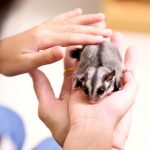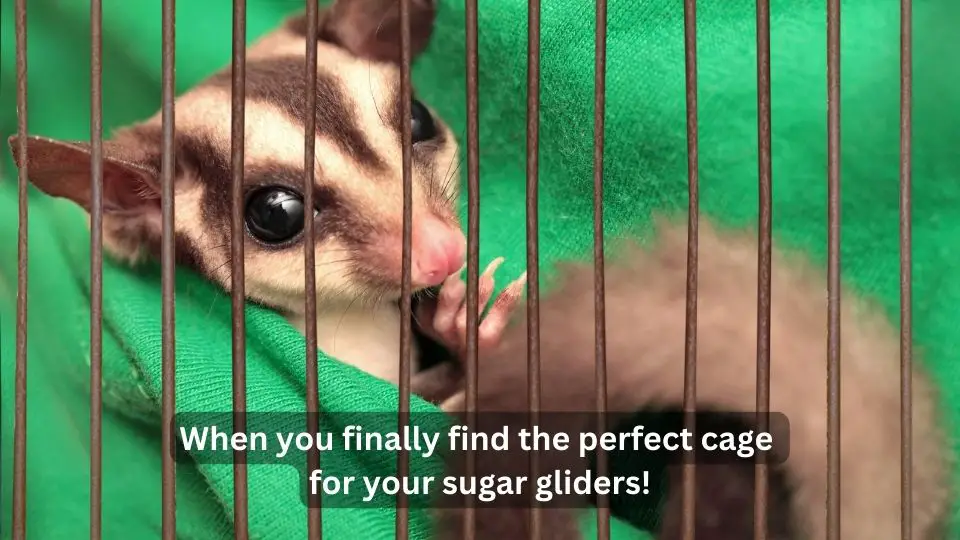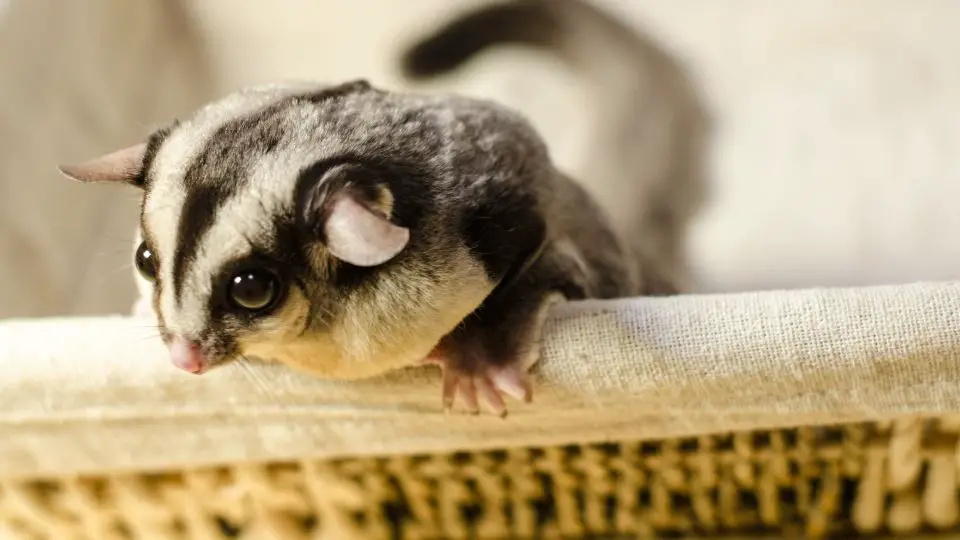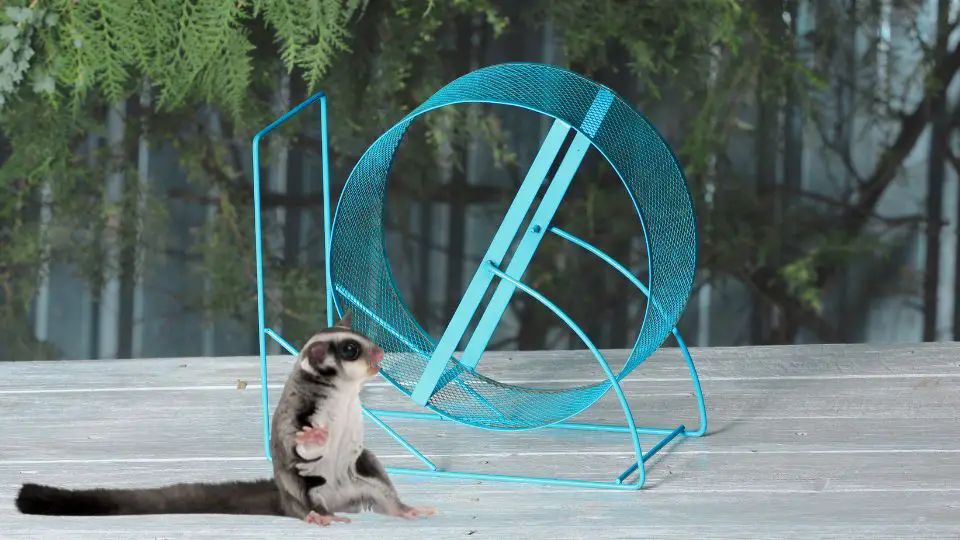Do you have a sugar glider? If so, you may have noticed that your little buddy likes to crab. But why do sugar gliders crab? What is the purpose of this behavior?
This article will explore the reasons behind sugar gliders’ crabbing habit and offer some insights on how to interpret it. So if you’re curious about this quirky behavior, keep reading!
Why Do Sugar Gliders Crab?
Sugar gliders are known for making a sound called “crabbing.” This sound is made by rapidly vibrating their vocal cords, and it can be used for both communication and defense. But there are different reasons why sugar gliders crab in the wild and in captivity.
Crabbing in the wild
In the wild, they use this sound to communicate with each other. They also crab to let potential predators know that they are brave and ready to defend themselves.
Sugar gliders use crabbing to let other sugar gliders know where they are and to warn off the predators. The noise made by the glider may freeze the animal in place or make it go away.
Crabbing in captivity
In captivity, they may crab to let you know that they are stressed, bored, or uncomfortable. They may also crab if they are trying to get your attention.
Once you figure out the reason, you can try to fix the problem. If your sugar glider is crabbing because they are bored, try giving them more toys and things to do. If they are crabbing because they are stressed, try to find the source of the stress and remove it. And if they are crabbing because they need more attention, try spending more time with them.
Crabbing can be a normal part of sugar glider communication, but it can also be a sign of a problem. If you are concerned about your sugar glider’s crabbing, talk to a veterinarian or another experienced sugar glider owner.
Reasons why sugar gliders crab
When You Introduce a New Sugar Glider
There are several reasons why your sugar glider may crab when you introduce a new one. It could be that the new sugar glider is in their territory and they are trying to protect it.
Or, the new sugar glider could be a potential mate and they are trying to impress them. It’s also possible that they are just curious about the new sugar glider and want to get a closer look.
When the Sugar Glider Is Introduced to Other Pets
If you have other pets in the house, your sugar glider may crab when they are introduced to them. This is because they are trying to protect their territory. They may also crab if they are feeling threatened by the other pet.
If your sugar glider is crabbing when they are around other pets, you should try to keep them separated. This will help to keep your sugar glider safe and stress-free.
When the Sugar Glider Is Stressed
There are many things that can cause stress in sugar gliders. Some of the most common causes of stress include:
- loud noises
- changes in their environment
- being around new people or animals
- being separated from their bonded mate
If your sugar glider is stressed, they may start to crab. This is their way of trying to relieve the stress. If you think that your sugar glider is stressed, you should talk to a veterinarian. They can help you figure out the cause of the stress and how to fix it.
When the Sugar Glider Is Irritated or Upset
There are many things that can irritate or upset sugar gliders. Some of the most common things include:
- being held too much
- being mishandled
- not getting enough attention
- boredom
If your sugar glider is crabbing because they are irritable or upset, you should try to figure out the cause. Once you know the cause, you can try to fix the problem. For example, if they are crabbing because they are not getting enough attention, try spending more time with them.
Other sugar glider sounds and their meanings
Despite their utter silence, sugar gliders can produce an array of sounds. While some of these sounds are unique, others are similar to other glider sounds. Understanding the differences between them is a vital part of responsible glider ownership.
Barking
A sugar glider’s bark sounds similar to a dog’s, except it’s much higher pitched and shorter. A barking sugar glider is usually trying to warn others of danger or communicate excitement.
Hissing
A sugar glider’s hiss is a long, low noise that sounds a bit like a snake’s. A sugar glider will usually only hiss when they feel threatened and are trying to scare off the perceived danger.
Purring
A sugar glider’s purr is a long, low noise that is similar to a cat’s purr. Sugar gliders usually purr when they are content and happy. If your sugar glider is purring, it’s a good sign that they are happy and comfortable.
Singing
A sugar glider’s song is a series of high-pitched noises that sound a bit like birdsong. Sugar gliders usually sing when they are happy and excited. If you hear your sugar glider singing, it’s a good sign that they are feeling good.
Conclusion
Overall, there are many reasons why sugar gliders may crab. Some of the most common reasons include territoriality, stress, and irritation. If your sugar glider is crabbing, it’s important to try to figure out the cause. Once you know the cause, you can work on fixing the problem. In most cases, sugar gliders will stop crabbing once the problem is resolved.







